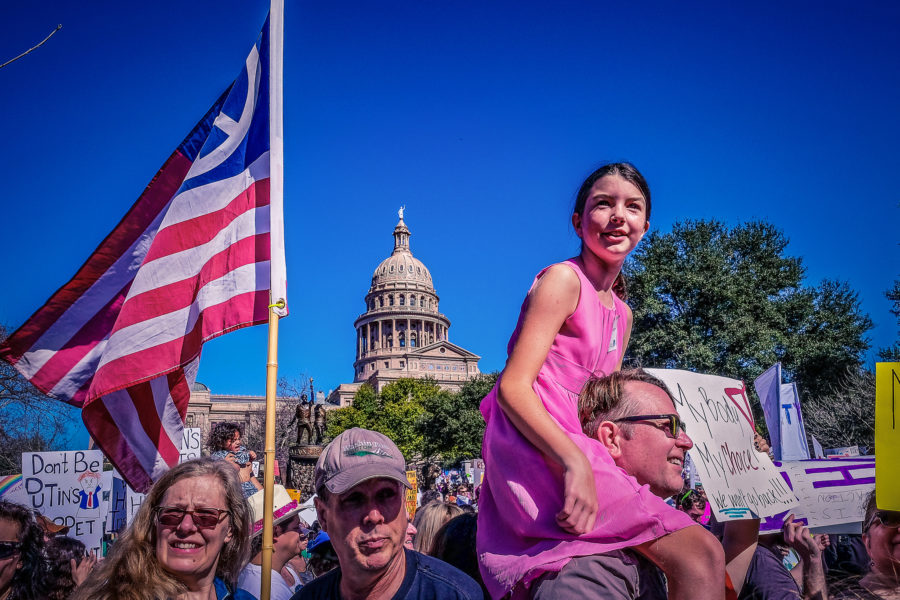Kristin
A program that helps students develop social and emotional skills like self-control, empathy, and self-efficacy leads to higher voter turnout when those kids become adults. Researchers hypothesize that:
“Those who are able to put themselves “in someone else’s shoes” may be more motivated to mobilize and vote on behalf of others. The ability to self-regulate emotions and behaviors—and display grit or perseverance—may come in handy in the stress of waiting in a three-hour-long line at the polls. In addition, developing these SEL skills can reduce the likelihood of negative life events (like teenage pregnancy or criminal activity), and those who experience events like these are much less likely to vote.”
I LOVED this piece by Brit Marling about Harvey Weinstein and the economics of consent. I’m just going to quote:
“consent is a function of power. You have to have a modicum of power to give it. In many cases women do not have that power because their livelihood is in jeopardy …
The real danger inside the present moment, then, would be for us all to separate the alleged deeds of Cosby, Ailes, O’Reilly, or Weinstein from a culture that continues to allow for dramatic imbalances of power. It’s not these bad men. Or that dirty industry. It’s this inhumane economic system of which we are all a part.”
I know it shouldn’t have, and yet, this list of girl vs boy scout badges shocked me. And made me think about the ways in which I respond to the world and the workplace as a “Household Elf,” “Good Neighbor,” and needing to “Make Friends,” while the men around me are more likely to be trained in, or think about being good at “American Business,” “Inventing,” and “Personal Fitness.” The article’s main point is spot on that our society encourages girls to learn things like how to be a babysitter, how to cook, how to motivate a team mate, how to be part of a team that includes everyone, how to make decisions in a group, how to make friends, how to take responsibility for what you do and say. Wouldn’t we all be better off if we helped boys learn those things too?
A 3 minute Vox video about Proportional Representation. YES!
Eric
My ongoing research into the research on social media is making me increasingly alarmed. (See my previous installments on this subject here, here, and here.) This item isn’t new, but it’s worth surfacing again because it’s so very important: a rigorous well-designed study finding that the more you use Facebook, the worse you feel. According to the study’s authors, who summarized their findings in the Harvard Business Review:
Overall, our results showed that, while real-world social networks were positively associated with overall well-being, the use of Facebook was negatively associated with overall well-being. These results were particularly strong for mental health; most measures of Facebook use in one year predicted a decrease in mental health in a later year. We found consistently that both liking others’ content and clicking links significantly predicted a subsequent reduction in self-reported physical health, mental health, and life satisfaction. [emphasis added]
Their findings confirm a range of previous studies on the topic. Quoting again from HBR:
Prior research has shown that the use of social media may detract from face-to-face relationships, reduce investment in meaningful activities, increase sedentary behavior by encouraging more screen time, lead to internet addiction, and erode self-esteem through unfavorable social comparison. Self-comparison can be a strong influence on human behavior, and because people tend to display the most positive aspects of their lives on social media, it is possible for an individual to believe that their own life compares negatively to what they see presented by others.
In fairness, there are others who allege that social media may have improve well-being. They often point to a single study showing that supportive interactions on social media lead to feelings of being supported. So there’s that.
But wait, it gets worse. Social media is bad not only for our mental states, but seems also to be bad for our civic institutions. A fascinating article at the Economist on the role of social media in democracy has dire news:
…stories and incendiary posts bounce between social networks, including Facebook, its subsidiary Instagram, and Twitter. They often perform better than content from real people and media companies. Bots generated one out of every five political messages posted on Twitter in America’s presidential campaign last year. [emphasis added] The RAND Corporation, a think-tank, calls this integrated, purposeful system a “firehose of falsehood”.
And:
Such ecosystems are a symptom of political polarisation. They also drive it further. The algorithms that Facebook, YouTube and others use to maximise “engagement” ensure users are more likely to see information that they are liable to interact with. This tends to lead them into clusters of like-minded people sharing like-minded things, and can turn moderate views into more extreme ones.
Aven
A few flashes of hope this week to counter the long dark year behind us and the long dark season ahead: the progressive sweep that brought, among other things, record numbers of women, people of color, and LGBTQ candidates to the table, while employers across the country are independently committing to protect their workers’ access to birth control in the face of attacks on women’s rights by the federal administration.


Comments are closed.